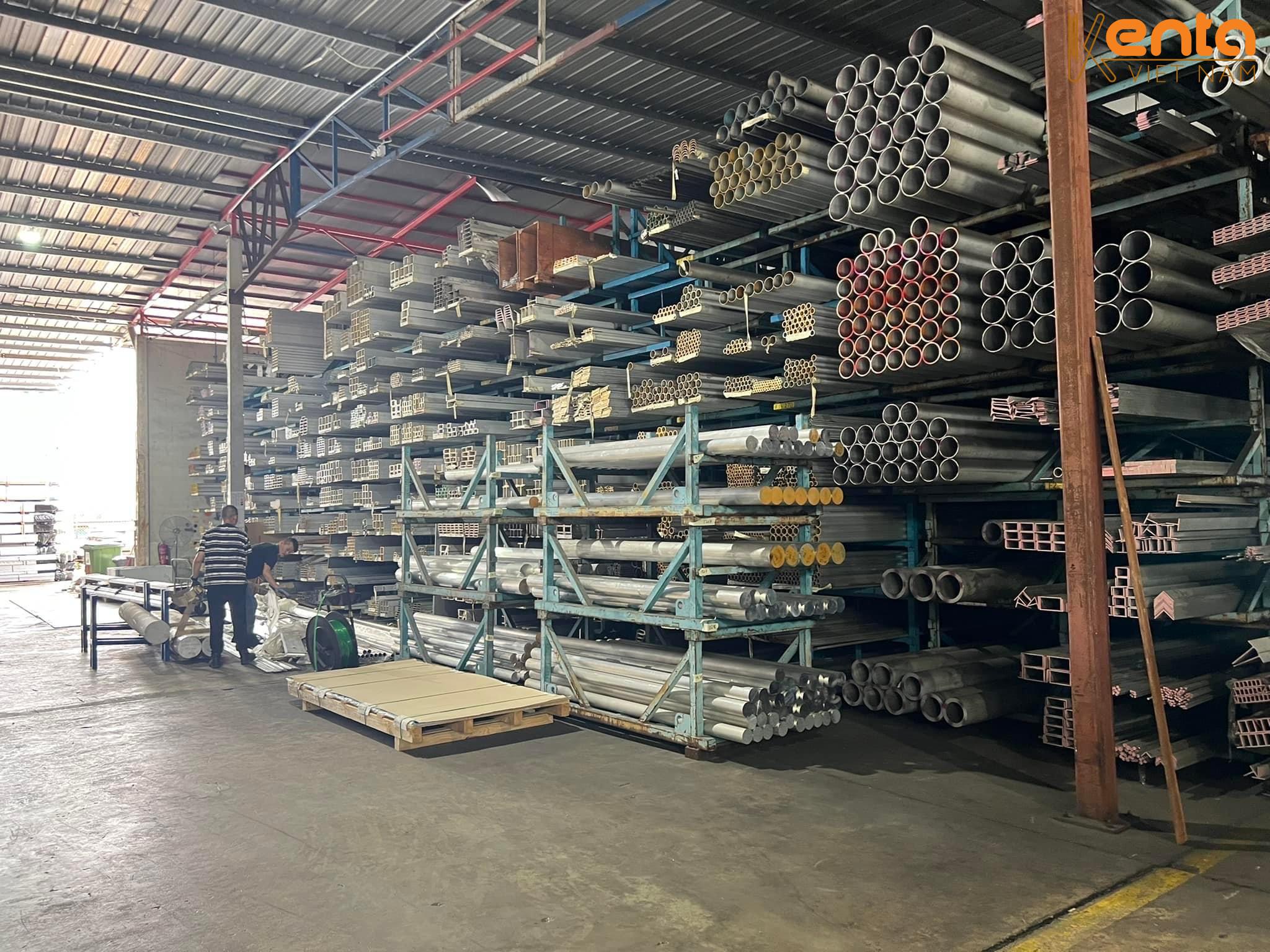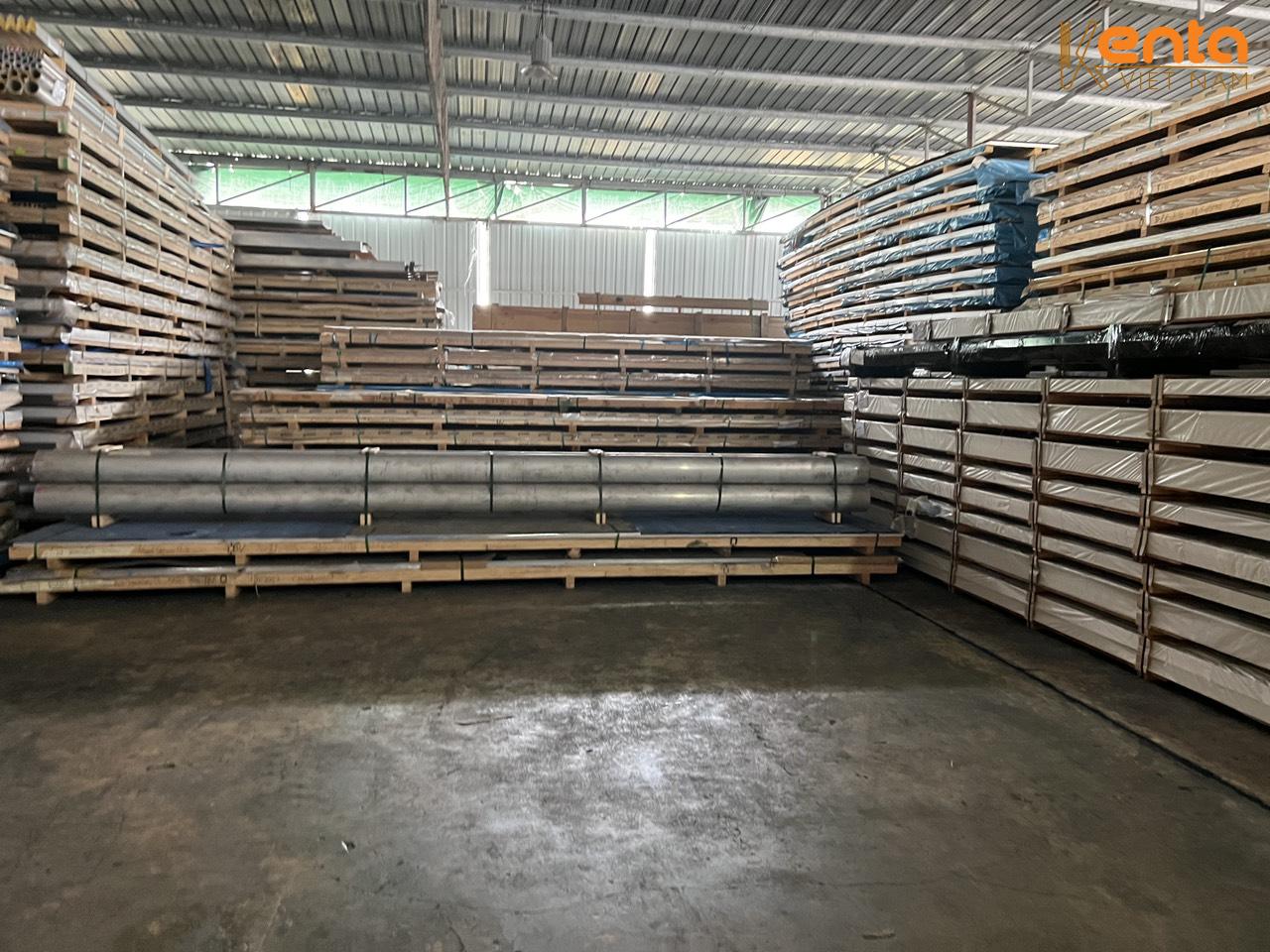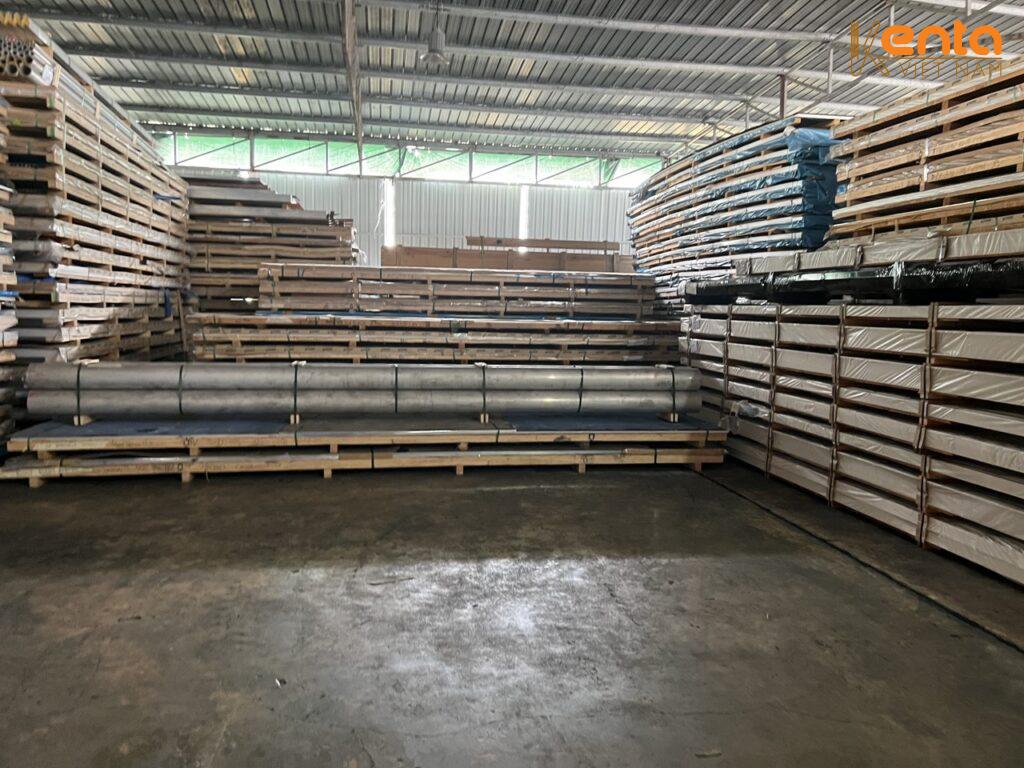Knowledge, Technology
5 APPLICATIONS OF ALUMINUM IN INDUSTRY
Aluminum is a highly versatile material with wide applications in many aspects of life due to its lightweight, durability, and ease of recycling. Let's explore the industrial applications of aluminum with Kenta VietNam in the following article!

Applications of aluminum in industry
What is aluminum?
Aluminum is a naturally occurring metal, extracted from bauxite ore, capable of chemical reactions with various compounds, and is the third most abundant element after oxygen and silicon. After being extracted and separated from bauxite ore, aluminum is produced to form extruded aluminum profiles or aluminum sheets.
What is aluminum?
Properties of aluminum?
Aluminum is a non-ferrous metal with an allotropic form, a dull silvery-white metallic luster, and is soft and light. Aluminum has a face-centered cubic lattice with a lattice parameter a = 4.04 Ao, and possesses the following properties:
Low density (g = 2.7g/cm3).
High electrical and thermal conductivity, with small thermal expansion.
Non-magnetic and non-combustible when exposed to air under normal conditions.
Low melting point (660oC), making it easy for smelting, but aluminum alloys cannot be used at high temperatures.
Low melting point (660oC), making it easy for smelting, but aluminum alloys cannot be used at high temperatures.
Low castability due to high shrinkage, up to 6%.
Low mechanical properties (σb = 6 Kg/mm2, HB = 25, δ = 40%), making it very susceptible to deformation and having low machinability.
The strength of pure aluminum is 7-11 MPa, while aluminum alloys have strengths ranging from 200 MPa to 600 MPa.
Therefore, aluminum has the following characteristics:
Lightweight: Aluminum has a low density, about 2.7 g/cm³, which helps reduce the weight of products using it.
Corrosion resistance: The surface of aluminum naturally forms a protective oxide layer, which helps prevent corrosion caused by chemicals or moisture.
Electrical and thermal conductivity: Aluminum is one of the best electrical and thermal conductors, second only to copper.
Easy to process: Aluminum can be easily cut, welded, pressed, and cast into various shapes.
Ductility and elasticity: Aluminum can be bent without breaking, allowing for the creation of complex products.
Recyclability: Aluminum can be 100% recycled without losing quality, helping to protect the environment.
Reflective properties: Aluminum has good reflective properties for light and heat, often used in applications requiring this feature.
These properties make aluminum a popular material.

Properties of aluminum
Top 5 industrial applications of aluminum
Thanks to the aforementioned properties, aluminum is considered a lightweight, durable metal with high corrosion resistance and easy recyclability, making its industrial applications extremely widespread. Below are some of the most typical applications of aluminum metal:
Aerospace industry
Aluminum is used to manufacture aircraft fuselages, wings, engines, and other components because it is lightweight and durable. This helps save fuel and increase flight efficiency.
Furthermore, the application of aluminum in industry is also evident in aerospace technology, as it is used in spacecraft and satellites because it can withstand high temperatures and harsh environments in space.
Automotive industry:
Aluminum is used to manufacture car bodies, hoods, doors, wheels, and other components to reduce vehicle weight, increase fuel efficiency, and improve handling.
Car engines are also a very common application of aluminum alloys, as it is a material that can withstand high temperatures and possesses excellent friction resistance.
Electronics industry
Aluminum is used to make casings for computers, mobile phones, tablets, and other electronic devices because it has good electrical conductivity and helps dissipate heat effectively.
The application of aluminum in electronic components such as capacitors and electrical wires is also becoming increasingly popular and widely favored.
Top 5 industrial applications of aluminum
Industrial construction industry
One of the industrial applications of aluminum that you cannot miss is its widespread use in roofing, partitions, windows, doors, and other structural components due to its lightweight properties,its durability and high corrosion resistance.
Furthermore, aluminum's application in the industrial construction sector is also evident in scaffolding and formwork systems due to its easy and convenient installation and removal.
Chemical and Food Industries
Aluminum's most common application in the chemical and food industries is in the production of containers, pipelines, and other equipment, as it possesses high corrosion resistance and is unaffected by chemicals.
Beyond that, with its good heat retention and ability to keep food fresh, aluminum is also used to produce foil and instant food containers (e.g., sardine cans, two-slice pork cans, instant pate cans...).
From the information above, we can see that aluminum's applications in various industries are countless. It is truly a lightweight, durable, and inexpensive material, making it widely used in many fields.
Learn more at Kenta VietNam for more useful information about industrial products!




















